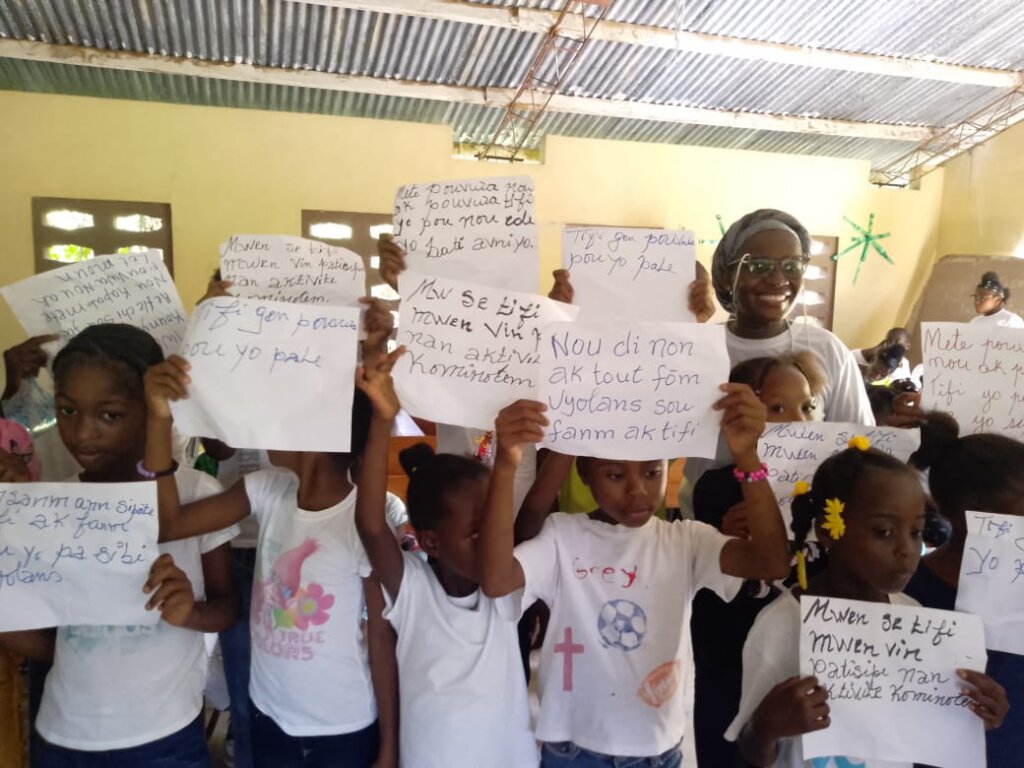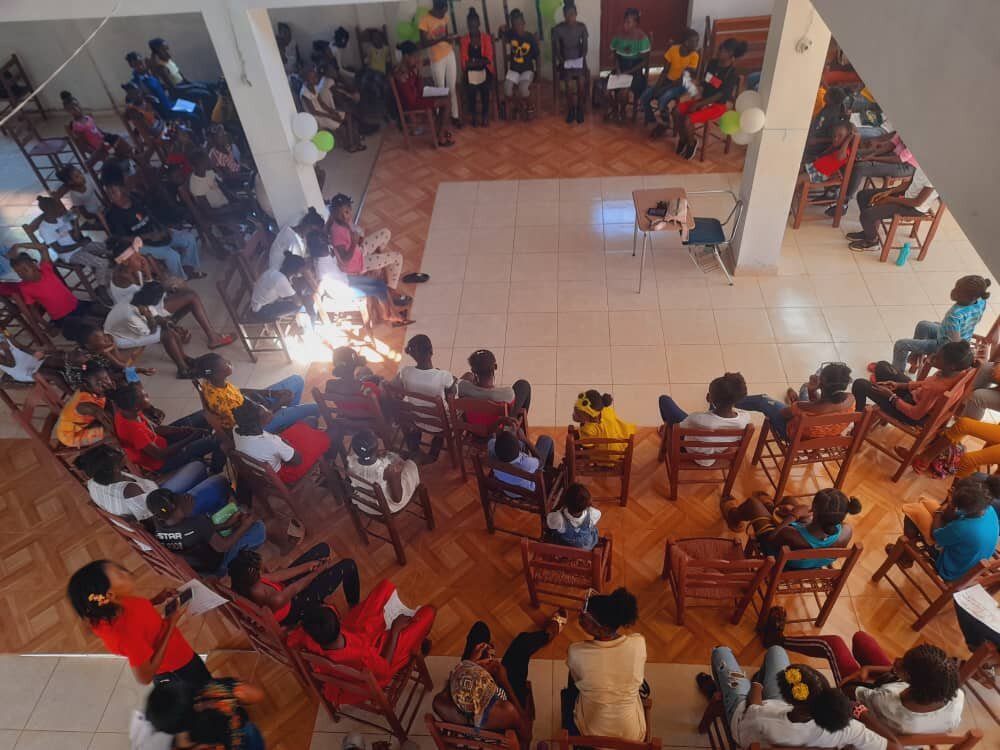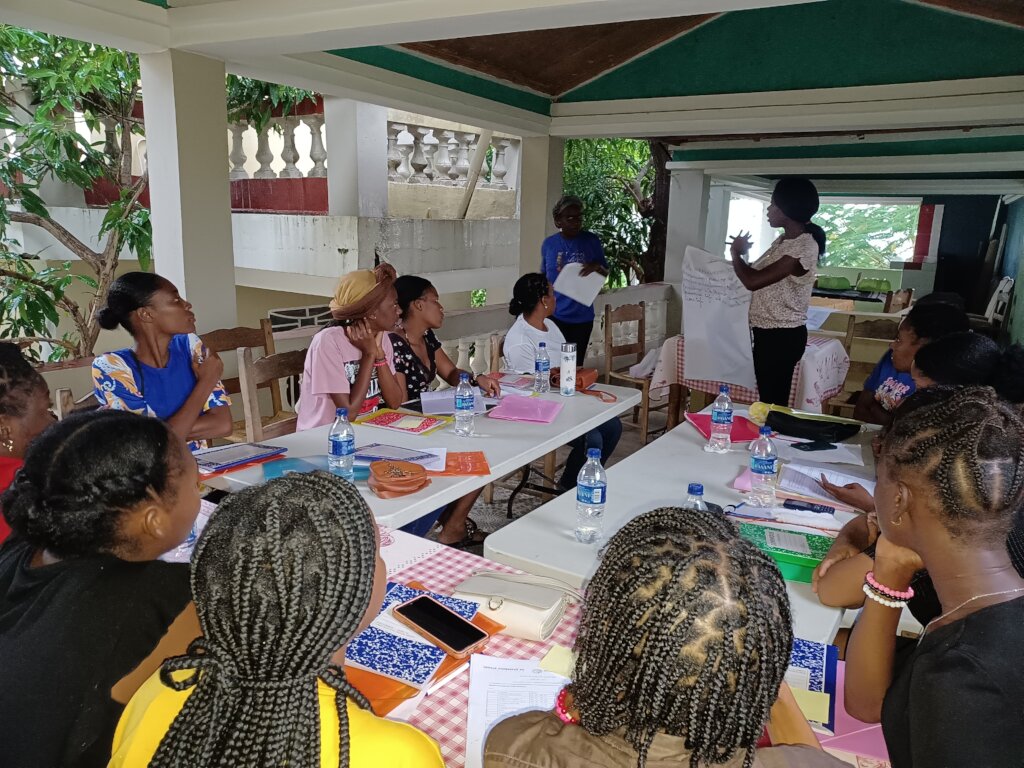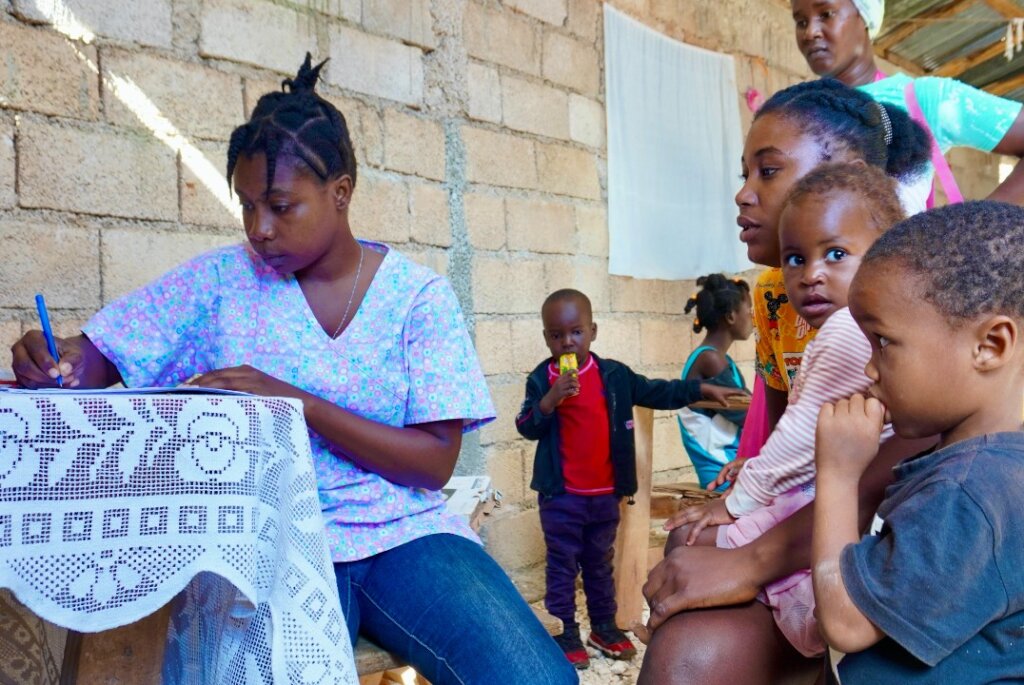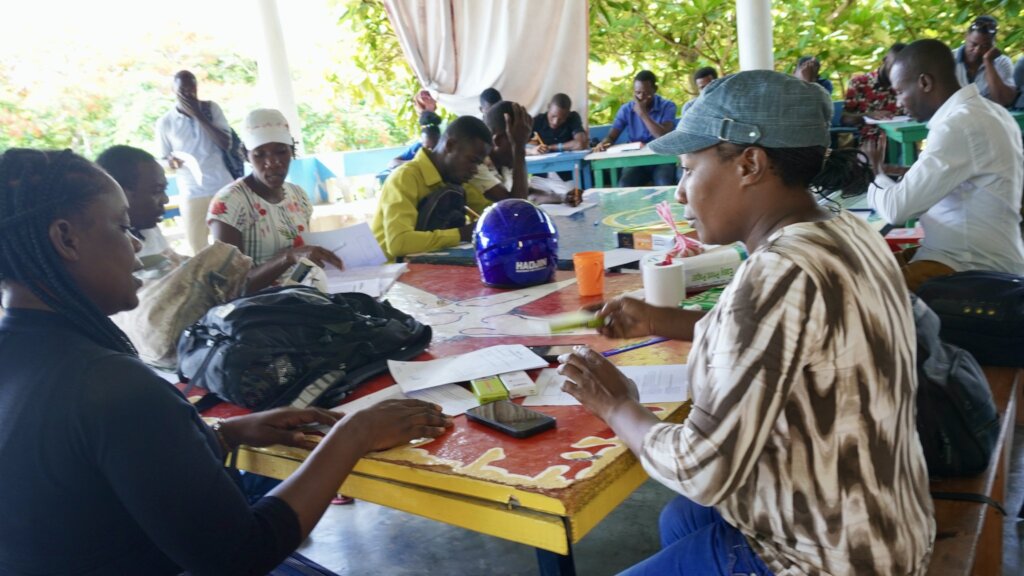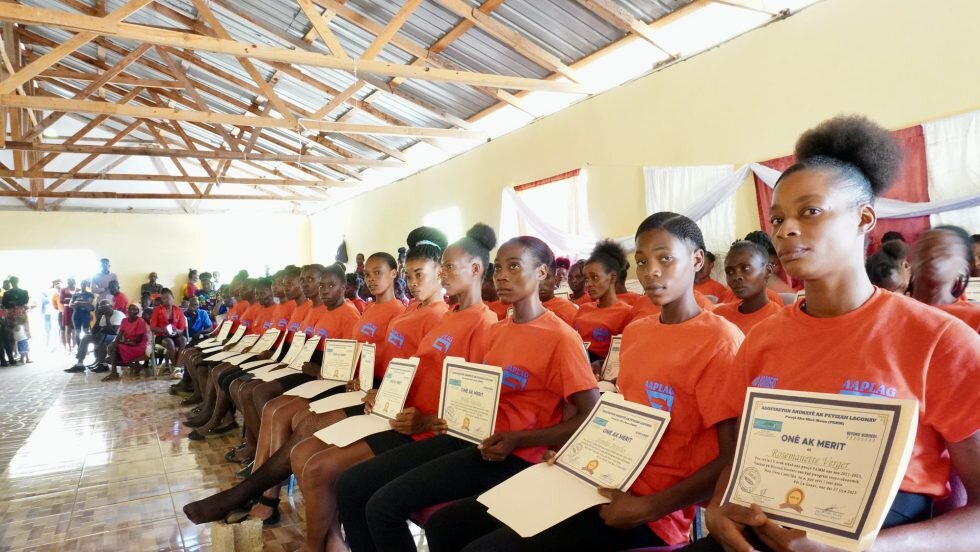By Brian Stevens | Engagement Director
You Are Advancing the Health and Wellbeing of Haiti’s Women and Girls
Thank you for your generous support for Beyond Borders’ Free, Educate, and Empower Girls in Haiti project on GlobalGiving.
Your support is building movements that address key social determinants of the health of women and girls, including violence, exploitation, discrimination, extreme poverty, and limited access to education.
Your generosity fosters the movement to end violence against women by promoting methods that reduce intimate partner violence (IPV) by over half community-wide. This success stems from significant shifts in local norms that balance power between women and men, which leads to a range of other improvements in the wellbeing of women and girls.
Why We Are Prioritizing Girls
We give special attention to girls because the violence and deprivation they experience have lifelong health repercussions. The biggest threat girls face is a form of labor trafficking called restavèk, which affects nearly one in six girls. BB is playing a leading role in building the movement to end restavèk largely by mobilizing adult survivors of the practice, who receive therapeutic support that offers significant healing from childhood trauma. Your generosity and your solidarity makes all this possible.
With your support BB is also helping build two other complementary movements – the movement for universal access to quality primary education and the movement for economic justice and sustainable livelihoods – which address two other significant determinants of women’s health in Haiti.
All these movements work synergically to dramatically improve the health and wellbeing of marginalized women and girls in Haiti. Our vision is to scale these movements to larger regions of Haiti through new partnerships to a tipping point where they begin to have a national impact.
Thank you for being part of this movement building effort.
Your Generosity Empowers Those Most Impacted by Injustice
The most important stakeholders in any movement are those most affected by the problem that the movement aims to address. This is why we prioritize their engagement, even though histories of exclusion can make them initially reluctant.
Effective movements develop broad, diverse bases. We use tools like the Ecological Model to help activists analyze their movement's ecosystem and Open Space to bring stakeholders together across traditional barriers to achieve this.
Some stakeholders are easily identified—schools, religious groups, cooperatives, women’s groups, etc. Identifying other unaffiliated and less visible demographic groups is more challenging. It took time, for example, for the anti-violence movement to recognize people living with disabilities as crucial stakeholders due to the violence and discrimination they face.
Seeing Oppressive Groups as Potential and Even Essential Stakeholders
It is also difficult to see oppressive groups as potential and even essential stakeholders. We have seen many former perpetrators of child trafficking become passionate leaders in the movement to end the practice. Additionally, our approach to preventing violence against women relies on fully engaging men who come to understand that everyone benefits when women live without fear. BB also identifies national and international allies, leveraging their expertise to help strengthen movements and more effectively address the key determinants of women’s health.
Thank you for supporting work that empowers the people most impacted by injustice and seeks to convert oppressive groups to allies.
Your Generosity Supports a Multi-Faceted Approach to Empower Women and Girls
To build the movement to prevent violence against women, we began in 2011 by adapting an approach that reduced IPV community-wide in Uganda by more than half. We then developed two complementary models that focus on violence against girls and those living with disabilities. Our approaches produced equally dramatic reductions in IPV even as gang-related insecurity grows.
In 2006 we began building a movement to end a form of child trafficking that disproportionately affects girls. While successfully advocating for legislation that outlawed this practice, enforcement has been lax except in regions where we have helped build the anti-trafficking movement. There we see dramatic reductions in trafficking, large numbers of children being liberated, and survivors finding significant healing from childhood trauma.
Child trafficking is both a consequence and cause of extreme poverty. More than half of the poorest rural households are led by women who are trafficking survivors. We promote the Graduation approach, which equips 97 percent of participating women to develop sustainable livelihoods and free their families from the intergenerational cycle of hunger, homelessness, poor health, and servitude in just two years. We also promote Village Savings and Loans, greatly increasing women’s access to affordable credit.
Traditional schooling in Haiti relies heavily on violence and shame to manage classrooms, and has abysmal educational outcomes. The movement we launched three decades ago promotes student-centered, nonviolent, native-language instruction, significantly increasing the access girls have to quality education with significantly better outcomes.
None of this work would be possible without the generosity and solidarity of people like you. Thank you for supporting this work.
Your Generosity Supports a Bottom-Up Rather Than a Top-Down Approach
The most disadvantaged women in Haiti face a complex web of interconnected detriments to their mental and physical health. Top-down interventions that address only one or two factors rarely offer sustained improvements because other untreated factors eventually cause a regression to the norm.
Social movements are better suited to tackle this complexity because they function as complex adaptive systems, evolving dynamically to shift norms, mobilize resources, foster grassroots leadership, and generate broad systemic change. Progress is more sustainable since leadership and intelligence are decentralized and widely dispersed among those most affected.
BB maximizes its impact by acting as a catalyst for locally-led change. While much of our work relies on local volunteer activism and structures beyond our direct control, this approach ensures greater scalability and sustainability. BB’s Haitian staff are specifically trained in movement-building skills by partners like the Highlander Center and MPP Training Center.
We use a broad range of movement-build tools to promote and assess progress. We have become skilled at identifying approaches in Haiti and abroad that can be adapted to strengthen specific movement outcomes.
In more than 200 communities and neighborhoods, BB is helping build movements that have dramatically reduced violence against women and girls, significantly lowered the risk of trafficking, enhanced both the quality and access to education for girls, and achieved substantial and lasting improvements in the economic and social wellbeing of the most economically disadvantaged women and their families. These advancements greatly contribute to their current and long-term health.
Thank you for investing in this bottom-up approach to building social movements.
Thank You Again
Thank you again for all that you are making possible through your generous support for Beyond Borders' Free, Educate, and Empower Girls in Haiti project on GlobalGiving. We are deeply grateful for your solidarity in these challenging times.
You are building the movement to prevent violence against women and girls and ensure that every day more girls and women in Haiti are living free from violence, discrimination, and inequality. If you have any questions about what you read in this report, please contact Brian Stevens, Beyond Borders’ Engagement Director, at (305) 450-2561 or b.stevens@beyondborders.net
Links:
Project reports on GlobalGiving are posted directly to globalgiving.org by Project Leaders as they are completed, generally every 3-4 months. To protect the integrity of these documents, GlobalGiving does not alter them; therefore you may find some language or formatting issues.
If you donate to this project or have donated to this project, you can receive an email when this project posts a report. You can also subscribe for reports without donating.
Support this important cause by creating a personalized fundraising page.
Start a Fundraiser